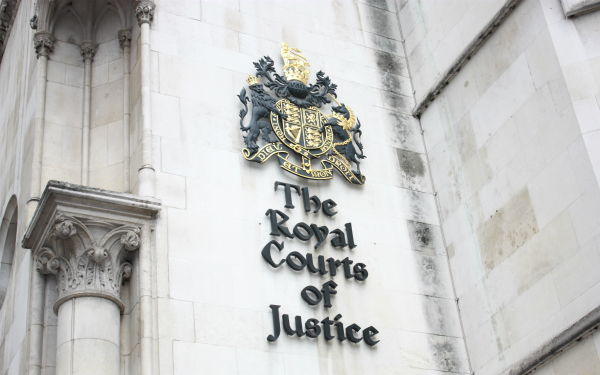
People in deprivation of liberty cases could have their rights safeguarded by an expert report on their best interests if no one is available to represent them, a judge has ruled in a move that could help clear a backlog of more than 300 cases.
Mr Justice Charles’s decision states that in applications to deprive a person of their liberty in care arrangements in the community to which they cannot consent, it would be lawful to direct a Court of Protection general visitor to report on their best interests if no friends, family members or professional advocates are available to represent them.
General visitors are Mental Capacity Act experts who the Court of Protection can commission to visit the individuals and agencies involved in deprivation of liberty cases and report back their findings.
The option of using general visitors could enable the Court of Protection to proceed with at least some of 330 deprivation of liberty cases that have been put on hold due to a lack of representatives for the individuals concerned.
‘Short-term’ fix
But Mr Justice Charles warned that this option – put forward by the government – was no more than a ‘short-term’ fix to the problem of ensuring individuals in deprivation of liberty cases have their right to liberty under Article 5 of the European Convention on Human Rights protected.
He said this is because the Ministry of Justice has failed to clarify any details about the extra resources it said it has given the courts service to support the use of general visitors in this way, including the amount of money and how long this money would be available for.
Despite his concerns about the sustainability using general visitors, Mr Justice Charles concluded that the Court of Protection should take up the option of using general visitors “for as long as it is available in practice” so that halted cases could proceed.
‘Cheshire West’
The problem of safeguarding the Article 5 rights of people who may be deprived of their liberty has been mounting since the Supreme Court’s 2014 ‘Cheshire West’ judgment, which effectively lowered the threshold for what counts as deprivation of liberty.
The judgment led to a surge in cases concerning deprivations of liberty outside care homes and hospitals, which require a Court of Protection order. In 2013 there were just 109 such cases, in 2016 there were 3,143.
In cases where the service user is not a party to the proceedings, the Court of Protection rules provide for a representative to be appointed on their behalf to report on their best interests. These representatives, known as Rule 3A representatives, would typically be a family member, a friend or a professional advocate.
However, the surge in deprivation of liberty safeguards cases, along with the introduction of Care Act advocacy in 2015, has dramatically reduced the capacity of advocates to take on new work and in some cases the service users have no friends or family who can become their Rule 3A representative.
Deprivation of liberty safeguards
This lack of Rule 3A representatives led to a 2016 decision by Mr Justice Charles on four test cases where deprivation of liberty authorisation was sought despite the lack of a Rule 3A representative on the grounds that the application was not contentious.
In that decision Mr Justice Charles ruled it would be unlawful for the applications to proceed and that it was the duty of central government, not local authorities, to find a solution to the lack of safeguards for the service user due to the lack of a Rule 3A representative.
He then put the four cases on pause and made the government party to the cases to prompt ministers to come up with an answer to the problem. Since that decision the number of similar cases on hold has risen to around 330.
General visitors
In April 2017 the government proposed using Court of Protection general visitors when no Rule 3A representative was available and said it had provided additional funding to the courts service to enable this option to be used, prompting Mr Justice Charles to re-examine the four cases.
He concluded that using general visitors in this way would comply with Article 5. General visitors would fulfil their safeguarding task by producing a report for the court under section 49 of the Mental Capacity Act.
This report, said Mr Justice Charles, should examine whether a person had capacity to consent to the care package, his or her attitude to the care package and whether he or she wanted to play a part in the proceedings. The report should also explore whether the care package is in the person’s best interests, whether a court hearing is required, and whether the restrictions in that package are inappropriate and should be changed.
However Mr Justice Charles criticised the government’s lack of clarity on the extra money it was providing to fund the use of general visitors in these cases. “I have concluded that the present offer of resource is not likely to provide anything but a short-term solution,” he said.
Pass the parcel
Mr Justice Charles also criticised the government for attempting to push the responsibility for addressing the shortage of Rule 3A representatives back onto local authorities in a October 2017 submission to the court.
“I am sorry that I have to conclude that the evidence in these cases shows that it can be expected that history will repeat itself and the Secretary of State will persist in taking an avoidant and unconvincing ‘pass the parcel’ approach to the problems, which he has a statutory duty to resolve alone or through a constructive approach with the local and other public authority applicants,” said Mr Justice Charles.
Responding to the ruling a government spokesperson said: “We note the judgment and are considering it carefully.”
The government declined to answer Community Care’s request for details about the extra funding to enable the use of general visitors in deprivation of liberty cases where no Rule 3A representative is available and that it would only consider releasing the information after receiving a request under the Freedom of Information Act.
Indefinite waits
Christina Blacklaws, vice president of the Law Society, said: “The judgment shines a light on a largely hidden area of our justice system where people suffering from dementia, Alzheimer’s or a learning disability wait indefinitely for their cases to be heard because of a lack of funding for representation.
“The 330 stayed cases at the Court of Protection represent a fraction of the thousands of people around the country who we believe are being deprived of their liberty without proper judicial oversight, in contravention of their rights under the Human Rights Act.
“As Mr Justice Charles makes clear, the state can no longer abdicate responsibility for providing funding – either to local authorities or to the Ministry of Justice – to protect some of the most vulnerable people in our society.”



 Bournemouth, Christchurch and Poole
Bournemouth, Christchurch and Poole  Hampshire County Council
Hampshire County Council  Oxfordshire County Council
Oxfordshire County Council  South Gloucestershire Council
South Gloucestershire Council  Wokingham Borough Council
Wokingham Borough Council  Webinar: building a practice framework with the influence of practitioner voice
Webinar: building a practice framework with the influence of practitioner voice  ‘They don’t have to retell their story’: building long-lasting relationships with children and young people
‘They don’t have to retell their story’: building long-lasting relationships with children and young people  Podcast: returning to social work after becoming a first-time parent
Podcast: returning to social work after becoming a first-time parent  How managers are inspiring social workers to progress in their careers
How managers are inspiring social workers to progress in their careers  Workforce Insights – showcasing a selection of the sector’s top recruiters
Workforce Insights – showcasing a selection of the sector’s top recruiters  Unlocking independence: how ASDAN gives care leavers choice and control over their future
Unlocking independence: how ASDAN gives care leavers choice and control over their future 

 Facebook
Facebook X
X LinkedIn
LinkedIn Instagram
Instagram
There does need to be a solution to this issue and thankfully Mr Justice Charles is taking a robust stance. We have applied for 13 DoLS in the last 12 months for people who live in the community. Not one of these applications has been heard and, in the majority of cases the Local Authority has either not acknowledged receipt or, if they have, plans have not progressed. I have a great deal of sympathy for my LA colleagues, the pressure in the system must be ridiculous.
Notwithstanding this pressure, we are supporting a number of very vulnerable people and for their sake and for our professional integrity we need the oversight that the CoP provides to ensure good practice and the least restrictive options are in place.
The real issue / problem is Cheshire West itself! This ruling gave the green light for the MCA and DoLs to be abused (even more than previously!) in order to bully families who dare to stand up for the family member they care for. People living in their own homes (bought, tenanted or as part of a family ) should not be subjected to horrendous attacks disguised under the cloak of the CoP simply because ‘some’ care is provided by the state. Time to turn Cheshire West in its head and focus officialdom’s attention on compelling private care companies to actually provide the amount and standard of care that they are contracted to provide, to hand back the front door keys to the cared tor person and leave innocent families alone!
The problem is not with the Cheshire West ruling itself. The principles as set out by Lady Hale are sound. It is however an urgent matter for the Government to get on with deciding on and resourcing practical arrangements to support Liberty Protection Safeguards or whatever the new regime will be called. The Law Commission was very clear that we need to place the emphasis on safeguarding and monitoring proportionate arrangements rather than on the act of “deprivation of liberty”. Many more of these safeguards could be approved/monitored through local Supervisory Bodies rather than having to go though the Court of Protection. As it stands, we have many dubious arrangements with no adequate process for review/challenge. As always, justice delayed is justice denied and it would be difficult to argue that the current chaos is in compliance with the ECHR.